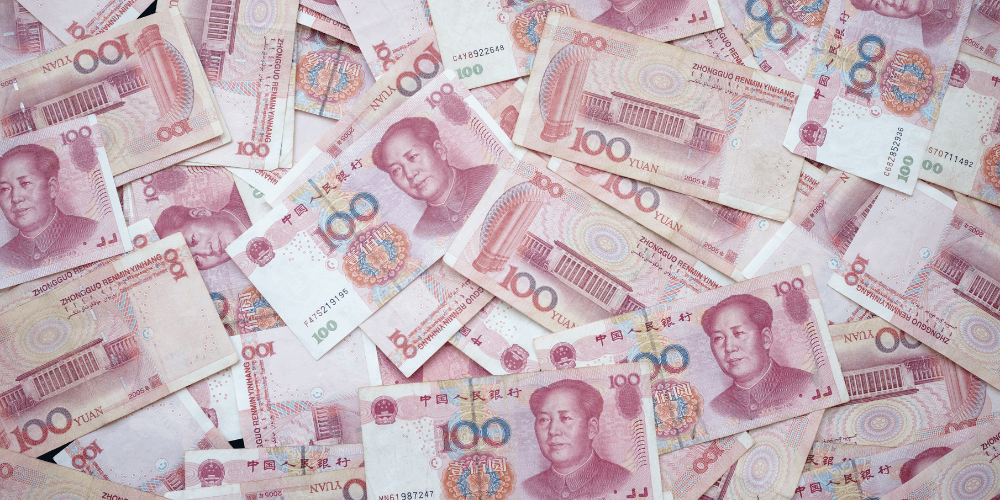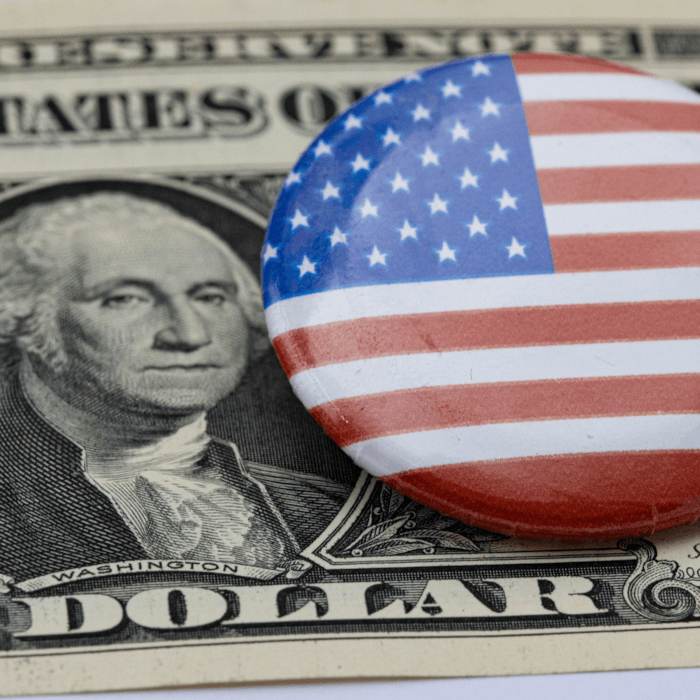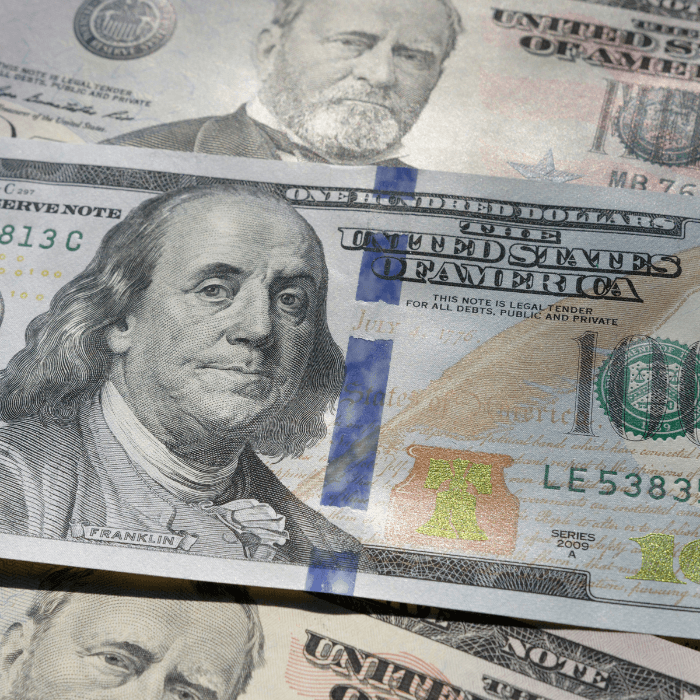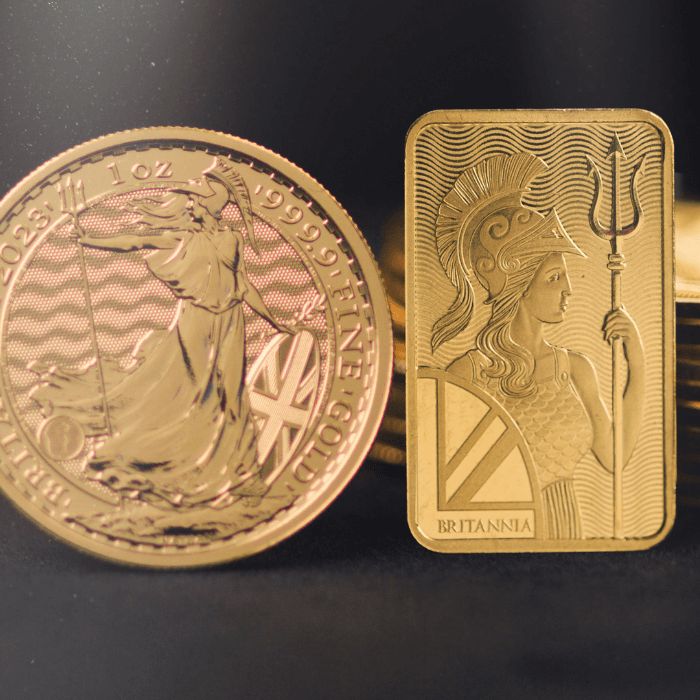China's Central Bank's Gold-Buying Spree: What It Might Mean for Investors
The Royal Mint

The motive behind China's gold-buying strategy is clear: to reduce its dependency on the U.S. dollar. This goal aligns with a broader trend among many countries, particularly those in the BRICS (Brazil, Russia, India, China, and South Africa) group, to minimise their reliance on the U.S. dollar in international trade and financial transactions.
The reliance on the U.S. dollar has often led to vulnerabilities, as the United States has used its currency's dominance to impose sanctions on countries like Russia and Iran. China's strategic move to accumulate gold assets appears to be a means of insulating its financial system from such vulnerabilities, as gold holds intrinsic value and isn't subject to the same geopolitical pressures as fiat currencies.
A Global Trend: Central Banks and Gold
China isn't the only country increasing its gold reserves. According to the World Gold Council (WGC), many central banks worldwide are considering adding gold to their reserves in the coming years. This trend is generally said to reflect a broader shift away from the U.S. dollar as the world's primary reserve currency.
Russia, another notable player, is expected to resume buying foreign currency and gold in the coming months. While exact details remain scarce, this move indicates Russia's continued diversification away from the dollar.
China's Impact on the Gold Market
China's robust demand for gold has contributed to significant price movements in the gold market. The increased demand from central banks, including China, has bolstered gold's resilience at a time when the U.S. dollar index is near a six-month high and U.S. 10-year bond yields are at 16-year highs above 4.35%.
While central bank demand provides support to the gold market, it's essential to recognise that prices may continue to face challenges in the near term. Gold prices often thrive when global economic growth slows down, and bond yields decrease. Therefore, individual investors need to consider the broader economic context when making decisions about their gold holdings.

What Does It Mean for Investors?
So, how does China's persistent gold buying spree affect individual investors, especially those interested in or already holding gold assets? This is a crucial question for those looking to navigate the ever-evolving world of gold investment.
Central banks, including China's, are increasing their gold reserves, indicating strong support for gold as a store of value. This trend can hold several advantages for individual investors seeking to diversify their portfolios and hedge against economic uncertainty.
Another consideration may be the diversification benefits that central banks see in gold. For individual investors, this means gold can help spread risk in their portfolios, potentially reducing their exposure to traditional financial assets. For many, it's a strategic move to enhance financial stability. Furthermore, China's gold accumulation demonstrates its role as a hedge against the devaluation of its currency, the yuan. This dynamic illustrates gold's potential to safeguard wealth amid currency fluctuations, which can benefit individual investors facing similar risks.
In addition to currency hedging, there are geopolitical considerations at play. Geopolitical tensions and concerns over the U.S. dollar's influence are driving central banks, like China, to explore alternatives. This geopolitical landscape can influence gold prices, making it a potentially attractive option for investors looking to protect their assets in uncertain times. From a long-term investment perspective, gold's enduring appeal is reinforced by central bank demand. While short-term price fluctuations are possible, central banks' interest in gold underlines its role as a dependable long-term investment.
So, how can individual investors leverage these insights? Gold can serve as a strategic asset allocation in your portfolio to provide a level of stability and attempt to reduce risk. As with any investment, incorporating gold should align with your personal investment goals and attitude to risk.
This means that ideally, you should stay updated on global economic trends, central bank policies, and geopolitical developments to make informed decisions, as these factors significantly impact the gold market. Being well-informed is key to harnessing the potential benefits that central banks recognise in gold and learning how you can invest as a result.
Sources:
- China buys 29 tonnes of gold in August, stretches buying spree to 10 months | Kitco News (On 17th September 2023)
- China is pushing ahead with dedollarization, hoarding gold for a 10th straight month after slashing Treasury holdings to a 14-year low (yahoo.com) (On 17th September 2023)
- China’s gold market in August: demand improved on multiple fronts | Post by Ray Jia | Gold Focus blog | World Gold Council (On 17th September 2023)
- De-Dollarization: Countries Seeking Alternatives to the U.S. Dollar (visualcapitalist.com) (On 17th September 2023)
- 2023 Central Bank Gold Reserves Survey | World Gold Council (On 17th September 2023)
- Russia to Restart Buying Currency, Gold as Energy Income Revives - Bloomberg (On 17th September 2023)
- US Dollar Index News: DXY Strength Reflects U.S. Economy’s Robust Health | Nasdaq (On 17th September 2023)
- US Treasury yields hit 16-year high on fears over interest rate outlook | Financial Times (ft.com) (On 17th September 2023)
The contents of this article, accurate at the time of publishing, are for general information purposes only, and do not constitute investment, pensions, legal, tax, or any other advice. Before making any investment or financial decision, you may wish to seek advice from your financial, pensions, legal, tax and/or accounting advisors.
This article may include references to third-party sources. We do not endorse or guarantee the accuracy of information from external sources, and readers should verify all information independently and use external sources at their own discretion. We are not responsible for any content or consequences arising from such third-party sources.




